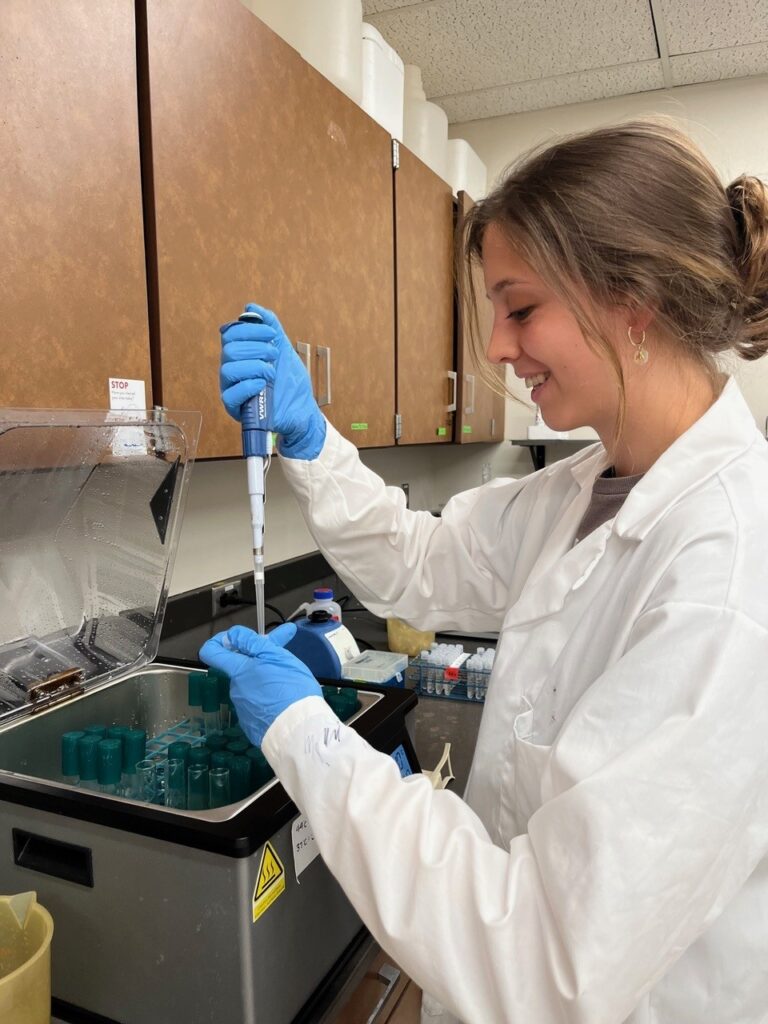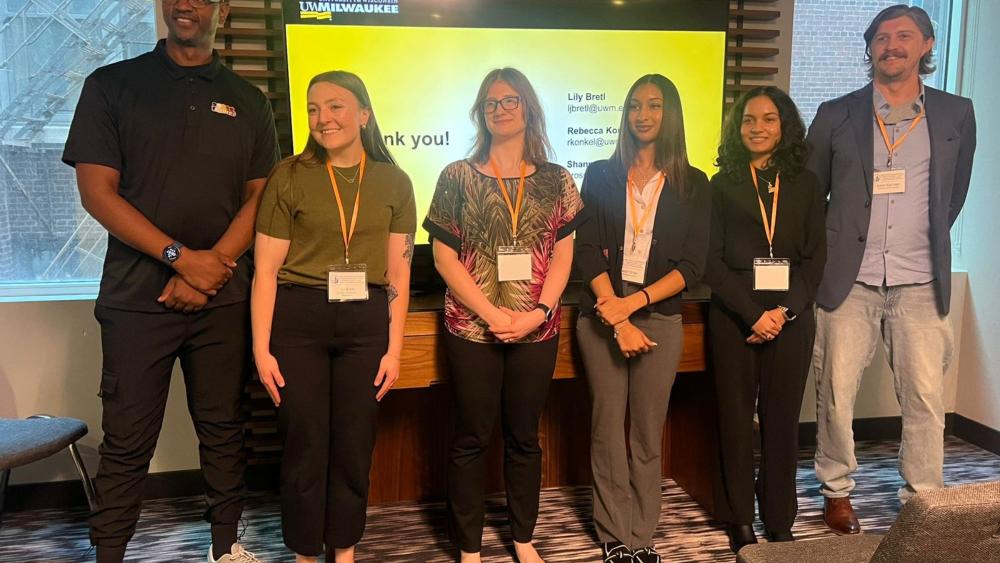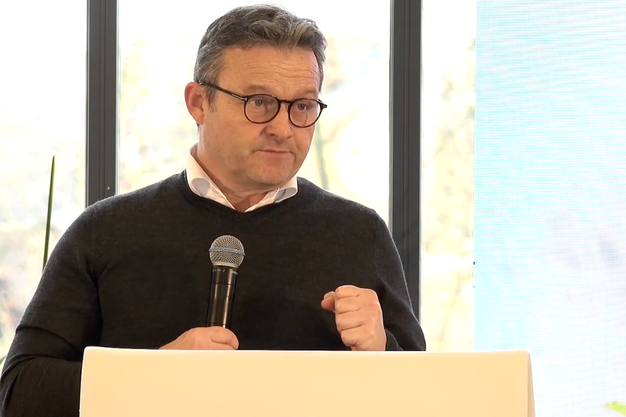Arthur J. Schmitt Fellow Samantha Juedemann advances leadership and research in sustainable drinking water – Marquette Today

Doctoral Research Aligned with Sustainable Development Goals
Subject Profile
- Name: Samantha Juedemann
- Position: Sixth-year Doctoral Student
- Field: Environmental and Water Resources Engineering
- Institution: Marquette University, Department of Civil, Construction, and Environmental Engineering
Research Focus on SDG 6: Clean Water and Sanitation
- The primary objective of the research is to advance access to safe and sustainable drinking water, directly contributing to Sustainable Development Goal 6 (Clean Water and Sanitation).
- The research investigates virus inactivation in water through innovative disinfection systems for direct potable reuse (DPR).
- This work, supported by the Department of Defense, aims to strengthen global water security and ensure universal and equitable access to safe and affordable drinking water, addressing SDG Target 6.1.
Leadership and Social Impact through the Arthur J. Schmitt Fellowship
Fellowship Objectives and Contributions to SDGs
- Juedemann was awarded the Arthur J. Schmitt Fellowship, which recognizes graduate students committed to positive social change and leadership.
- The fellowship supports the development of inclusive leadership skills, aligning with SDG 4 (Quality Education) through mentorship and SDG 5 (Gender Equality) by promoting female leadership in STEM fields.
Application of Leadership Skills
- Supervising research in a laboratory setting.
- Mentoring graduate and undergraduate students to foster confidence and scientific curiosity.
- Engaging in weekly discussions with the fellowship cohort to enhance leadership capabilities for social impact.
Broader Contributions to Sustainable Development
Addressing Infrastructure and Innovation (SDG 9 & SDG 11)
- The research addresses critical infrastructure challenges that impact public health and environmental sustainability.
- Key challenges targeted include:
- Combined sewer overflow systems
- Outdated disinfection technology
- Water scarcity
- By seeking to modernize these systems, the work contributes to SDG 9 (Industry, Innovation, and Infrastructure) and SDG 11 (Sustainable Cities and Communities).
Future Goals and Policy Advocacy for SDG 10
- Post-graduation, Juedemann plans to advocate for public access to clean, navigable, and drinking water.
- This focus on promoting equitable water policy and practice directly addresses SDG 10 (Reduced Inequalities) by ensuring fair resource distribution.
Dissemination of Research and Community Engagement
Academic Contributions
- Research findings on virus inactivation using UV light advanced oxidation processes will be presented at the 2026 Environmental & Water Resources Institute (EWRI) Conference.
- This dissemination of innovative water treatment technology supports the knowledge-sharing goals inherent in the SDG framework.
Community Involvement
- Juedemann’s volunteer activities with Habitat for Humanity further demonstrate a commitment to building sustainable and equitable communities, in line with the principles of SDG 11.
Analysis of Sustainable Development Goals in the Article
1. Which SDGs are addressed or connected to the issues highlighted in the article?
-
SDG 6: Clean Water and Sanitation
- The article is centered on Samantha Juedemann’s research, which “focuses on access to safe and sustainable drinking water.” Her work on “virus inactivation in water through innovative disinfection systems used in direct potable reuse” directly addresses the core mission of SDG 6. The text explicitly mentions goals like strengthening “global water security” and ensuring “universal access to affordable and safe drinking water,” which are central to this SDG.
-
SDG 3: Good Health and Well-being
- The research aims to modernize systems that “so many communities depend on for public health.” By focusing on “virus inactivation” and creating “safe, drinkable water,” the work directly contributes to preventing water-borne diseases, a key aspect of public health and a target within SDG 3.
-
SDG 9: Industry, Innovation, and Infrastructure
- Juedemann’s research is described as developing “innovative disinfection systems” to address “real-world infrastructure challenges, including combined sewer overflow systems, outdated disinfection technology, and water scarcity.” This focus on upgrading technology and modernizing water infrastructure aligns with SDG 9’s goal of building resilient infrastructure and fostering innovation.
-
SDG 4: Quality Education
- The article highlights a “sixth-year doctoral student” receiving the “Arthur J. Schmitt Fellowship” to support her advanced research and leadership development. This represents an investment in higher education and specialized training. Juedemann also mentors “graduate and undergraduate students,” contributing to the education and skill development of others in a critical field for sustainable development.
2. What specific targets under those SDGs can be identified based on the article’s content?
-
Targets under SDG 6: Clean Water and Sanitation
- Target 6.1: “By 2030, achieve universal and equitable access to safe and affordable drinking water for all.” The article directly mirrors this language, stating Juedemann’s findings have the potential to “ensure universal access to affordable and safe drinking water.”
- Target 6.3: “By 2030, improve water quality by… halving the proportion of untreated wastewater and substantially increasing recycling and safe reuse globally.” Her research on “direct potable reuse, the process of recycling treated wastewater into safe, drinkable water,” is a direct contribution to this target.
- Target 6.a: “By 2030, expand international cooperation and capacity-building support to developing countries in water- and sanitation-related activities and programmes, including… wastewater treatment, recycling and reuse technologies.” Her work on “innovative disinfection systems” represents the development of such technologies.
-
Target under SDG 3: Good Health and Well-being
- Target 3.3: “By 2030, end the epidemics of… water-borne diseases and other communicable diseases.” The research on “virus inactivation in water” is a direct method to combat water-borne diseases and protect “public health.”
-
Targets under SDG 9: Industry, Innovation, and Infrastructure
- Target 9.1: “Develop quality, reliable, sustainable and resilient infrastructure… with a focus on affordable and equitable access for all.” Juedemann’s desire to “modernize the systems” and address “outdated disinfection technology” aligns with improving the quality and sustainability of water infrastructure.
- Target 9.5: “Enhance scientific research, upgrade the technological capabilities of industrial sectors in all countries… encouraging innovation…” Her doctoral research, supported by a fellowship and funding, on “innovative disinfection systems” is a clear example of enhancing scientific research and encouraging innovation in the water sector.
-
Target under SDG 4: Quality Education
- Target 4.7: “By 2030, ensure that all learners acquire the knowledge and skills needed to promote sustainable development…” Juedemann, as a doctoral student, is acquiring and creating advanced knowledge for sustainable development. Her role in “mentoring graduate and undergraduate students” helps disseminate these critical skills to others.
3. Are there any indicators mentioned or implied in the article that can be used to measure progress towards the identified targets?
-
Indicators for SDG 6
- Implied Indicator for Target 6.1: The proportion of the population using safely managed drinking water services. Juedemann’s research on making recycled wastewater safe aims to increase this proportion by creating a new, reliable source of drinking water.
- Implied Indicator for Target 6.3: The proportion of wastewater safely treated. The success of her research on “virus inactivation” and “direct potable reuse” would be a direct measure of progress in safely treating and reusing wastewater.
-
Indicator for SDG 3
- Implied Indicator for Target 3.3: The incidence of water-borne diseases. The effectiveness of the “innovative disinfection systems” she is developing could be measured by a reduction in the presence of viruses in treated water, which in turn would lower the risk and incidence of related illnesses.
-
Indicator for SDG 9
- Implied Indicator for Target 9.5: The number of researchers and research outputs. The article mentions Juedemann as a doctoral student (a researcher-in-training) and notes her plan to “present her research… at the 2026 Environmental & Water Resources Institute (EWRI) Conference,” which is a measurable output of research and development activity.
-
Indicator for SDG 4
- Implied Indicator for Target 4.7: The number of students receiving education for sustainable development. The article highlights one doctoral student receiving a fellowship for this purpose and mentions her “mentoring graduate and undergraduate students,” implying a multiplier effect on the number of learners gaining skills in this area.
4. Summary Table of SDGs, Targets, and Indicators
| SDGs | Targets | Indicators |
|---|---|---|
| SDG 6: Clean Water and Sanitation |
6.1: Achieve universal and equitable access to safe and affordable drinking water for all.
6.3: Improve water quality by substantially increasing recycling and safe reuse globally. |
Implied: Proportion of population using safely managed drinking water services, enhanced by making new sources like recycled water safe.
Implied: Proportion of wastewater safely treated, measured by the effectiveness of “virus inactivation” in “direct potable reuse” systems. |
| SDG 3: Good Health and Well-being | 3.3: End the epidemics of water-borne diseases. | Implied: Reduction in the incidence of water-borne diseases as a result of improved water disinfection and safety. |
| SDG 9: Industry, Innovation, and Infrastructure |
9.1: Develop quality, reliable, sustainable and resilient infrastructure.
9.5: Enhance scientific research and encourage innovation. |
Implied: Rate of modernization of water infrastructure, replacing “outdated disinfection technology.”
Implied: Number of researchers and research outputs (e.g., conference presentations) focused on “innovative disinfection systems.” |
| SDG 4: Quality Education | 4.7: Ensure that all learners acquire the knowledge and skills needed to promote sustainable development. | Implied: Number of students in higher education and mentorship programs focused on sustainable water management and engineering. |
Source: today.marquette.edu
What is Your Reaction?
 Like
0
Like
0
 Dislike
0
Dislike
0
 Love
0
Love
0
 Funny
0
Funny
0
 Angry
0
Angry
0
 Sad
0
Sad
0
 Wow
0
Wow
0













































































